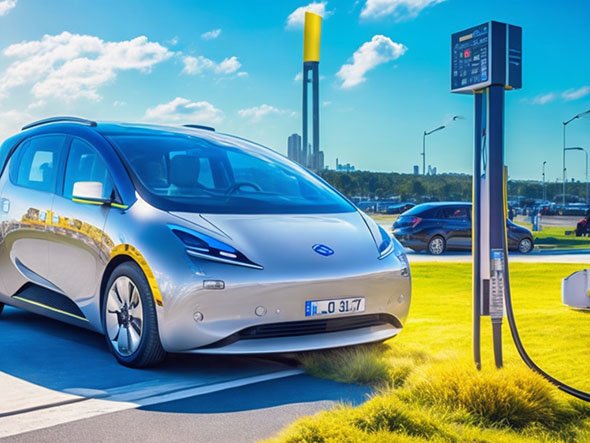
Introduction:
Electric vehicles (EVs) have gained significant traction in recent years as a cleaner and more sustainable mode of transportation. With advancements in technology, EVs are becoming increasingly viable alternatives to conventional gasoline-powered vehicles. However, the future of electric vehicles is not without its challenges. In this blog post, we will explore the exciting advancements in electric vehicles and discuss the key challenges that need to be addressed for widespread adoption.
Advancements in Electric Vehicles:
1. Battery Technology:
One of the most crucial advancements in electric vehicles is the improvement of battery technology. Lithium-ion batteries have dominated the EV market, but researchers are actively exploring alternatives such as solid-state batteries and lithium-air batteries. These next-generation batteries have the potential to offer higher energy density, longer range, shorter charging times, and enhanced safety.
2. Range and Charging Infrastructure:
The range anxiety associated with electric vehicles has significantly diminished as battery technology has improved. Modern EVs can now achieve ranges comparable to or even surpassing those of traditional vehicles. Additionally, the charging infrastructure has expanded considerably, with the proliferation of public charging stations and the development of fast-charging technologies. Wireless charging solutions are also being explored, which could revolutionize the convenience of EV charging.
3. Performance and Design:
Electric vehicles are no longer seen as sluggish alternatives to conventional cars. In fact, many EVs now offer exceptional acceleration and handling capabilities, thanks to the instant torque provided by electric motors. Moreover, manufacturers are focusing on creating stylish and attractive designs that appeal to a wide range of consumers, further breaking down the perception barriers.
4. Autonomy and Connectivity:
The integration of autonomous driving technology and connectivity features is another significant advancement in electric vehicles. With the advent of advanced driver-assistance systems (ADAS) and vehicle-to-vehicle communication, EVs are becoming safer and more efficient on the roads. These technologies also open up possibilities for shared mobility services and smart transportation ecosystems.
Challenges in Electric Vehicle Adoption:
1. Cost and Affordability:
The upfront cost of electric vehicles remains a barrier to mass adoption. Although prices have been decreasing steadily, EVs are still relatively more expensive than their gasoline counterparts. However, as economies of scale kick in, battery costs decrease, and government incentives are implemented, the price gap is expected to close over time.
2. Charging Infrastructure:
While significant progress has been made in expanding the charging infrastructure, particularly in urban areas, there is still a need for further development. Ensuring convenient and reliable access to charging stations, especially in rural and remote areas, is crucial to alleviate range anxiety and encourage wider EV adoption.
3. Limited Range and Charging Speed:
Despite significant advancements, electric vehicles still face limitations regarding range and charging speed compared to traditional vehicles. Increasing the range of EVs while reducing charging times remains a priority. Continued research and development in battery technology and charging infrastructure are necessary to address these challenges effectively.
4. Environmental Impact:
While electric vehicles produce zero tailpipe emissions, the environmental impact of their production and battery disposal must be considered. The extraction of raw materials for batteries and the recycling or disposal of spent batteries require sustainable practices to ensure a minimal carbon footprint. Manufacturers and policymakers must collaborate to implement environmentally friendly solutions throughout the lifecycle of electric vehicles.
Conclusion:
The future of electric vehicles holds great promise, driven by advancements in technology and increasing environmental awareness. With continued improvements in battery technology, charging infrastructure, and cost-effectiveness, EVs are poised to become the primary mode of transportation worldwide. However, addressing the challenges of cost, charging infrastructure, range limitations, and environmental impact will be crucial to ensure a smooth transition to a sustainable transportation future. By collectively tackling these challenges, we can unlock the full potential of electric vehicles and create a cleaner, greener, and more efficient transportation system for generations to come.
Share This News